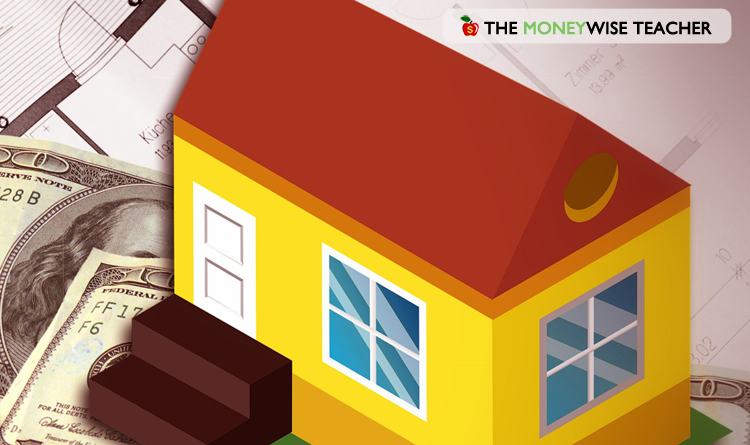With rising real estate prices across the board, not to mention in locations with a high cost of living already, buying your first home can seem daunting. You may be planning on buying your first home in a few years, but using these tips today will help you slowly start to save for that first down payment.
Originally, most mortgage companies requested a 20% down payment, which in today’s world can seem a little out of reach. However, with a few years of planning, you may be able to grasp this goal with a teacher’s salary.
Anything under 20% for your down payment may require you to pay PMI – or private mortgage insurance – on top of your mortgage payment, home insurance, and property taxes. Also, with this down payment, you can build up enough equity so that when you do go to sell your home, the closing costs and fees don’t eat up all of your investment.
However, there are a few ways to get a lower down payment as well if the 20% isn’t feasible when you’re ready to buy.
 Check out Teacher home loan programs
Check out Teacher home loan programs
There are many different teacher home loan programs out there, that allow you to buy a house without a 20% down payment. Nationally there are a handful of programs, but many states have programs too. For example there are at least 4 great teacher home loan options in California.
Most of them do require some sort of initial investment. FHA, for example, only requires 3%. Even if you plan on investing 20% at the start, you can get some neat perks like discounted closing costs and even donations to your school.
If you do decide on a lower down payment, you may want to continue using some of these tips to ensure you hit 20% equity before you go to sell your home. Be sure to check your mortgage loan for prepayment penalties if you do plan on making any extra principal payments.
Figure out your monthly goal
First, you’ll want to decide the price range of homes you’ll plan on looking at. Next, you’ll want to get prequalified with a lender to see what interest rates and programs you qualify for. Also, this is a good time to see if you need to do any work on your credit as well.
You can also use sites like Karl’s Mortgage Calculator to help you figure out future monthly payments depending on what you pay for your home and the down payment.
Set up an emergency fund
Even while you’re saving for a down payment, emergencies still happen. If you start out with savings that will cover three to six months of expenses, it’ll help you stay on track for your down payment when you need a sudden car repair or have a medical expense.
Planning for emergencies in advance helps you stay focused on your other goals.
Get a savings account
Open up a savings account with your bank or find one online. Make sure it’s an account that you can easily pull the money out of when needed.
You can set up an automatic deposit from your paycheck each month if your employer uses direct deposit. This is the best way because your money never touches your main spending account and eventually you’ll get used to seeing the net amount in your checking each month.
Adjust your budget
You’ll want to set your budget up so that you can reach your goal each month. You may have to change some of your spending habits or even give up some extravagances for the luxury of buying your home. Some ways to cut spending is checking with credit card companies on lowering interest rates. If you pay on time each month with the required amount, you can call in and tell them you want a lower rate.
Also, you may look at renting a moderately nice apartment instead of the three-bedroom house with a huge backyard, or you may want to trade in your car for a lower car payment if that saves you money. Anything that you can cut, even barely, will add up over time.
Use extra income wisely
Anytime you receive any large income outside of your regular salary, consider putting all or most towards your down payment savings. Tax returns are great opportunities to build up your nest egg. If you do any side jobs or summer jobs, try budgeting some of that income into the mix as well.
Your main goal is to funnel any kind of extra income into reaching your goal faster. Saving for a down payment can take a couple of years, but the equity you create will be worth it.




